MSU hosts tour of new Dairy Cattle Teaching and Research Center
Modernized facility will increase research output and impact, improve educational opportunities, serve as a hub for Michigan dairy industry

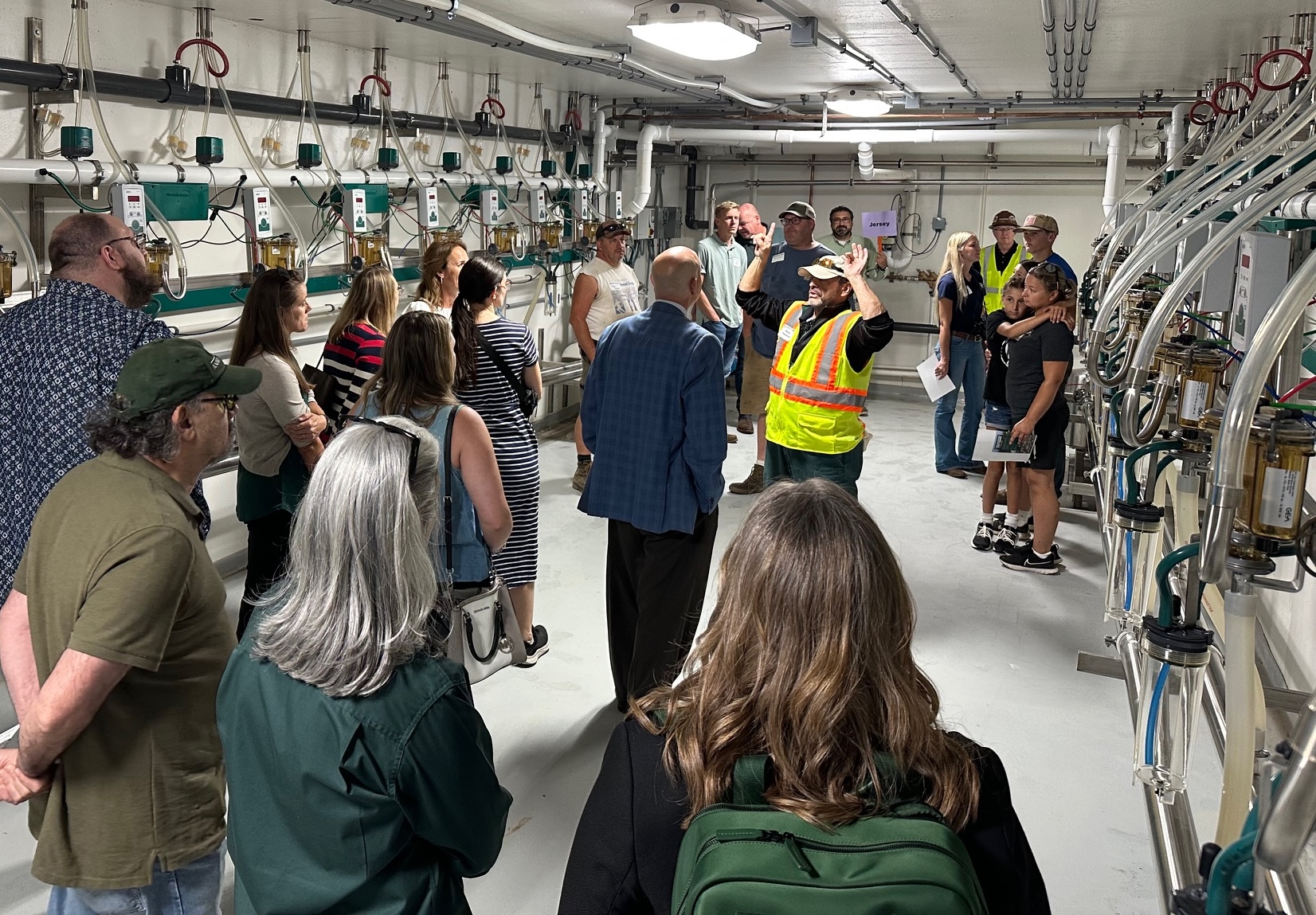 EAST LANSING, Mich. – Michigan State University opened the doors of its new $75-million Dairy Cattle Teaching and Research Center on July 17 to more than 250 guests excited to view the modern technology and expanded capacity of the MSU dairy farm.
EAST LANSING, Mich. – Michigan State University opened the doors of its new $75-million Dairy Cattle Teaching and Research Center on July 17 to more than 250 guests excited to view the modern technology and expanded capacity of the MSU dairy farm.
The tour of the new farm on MSU’s south campus served as a preview of the university’s expanded operations and commitment to the state’s dairy and agricultural industries.
A $30-million investment by the State of Michigan provided the initial funding for the project. Continued support from alumni, donors, the corporate sector and stakeholders in the dairy industry remains essential to fully realize the farm’s long-term vision for programming and research.
Construction of a new dairy farm allows MSU to modernize and greatly increase the size of the existing dairy farm (constructed in the 1960s). Upgrades at the Dairy Cattle Teaching and Research Center will bring MSU’s facilities into the 21st century – increasing research output and applicability, training the next generation of industry leaders and addressing the dynamic needs of Michigan’s dairy producers.
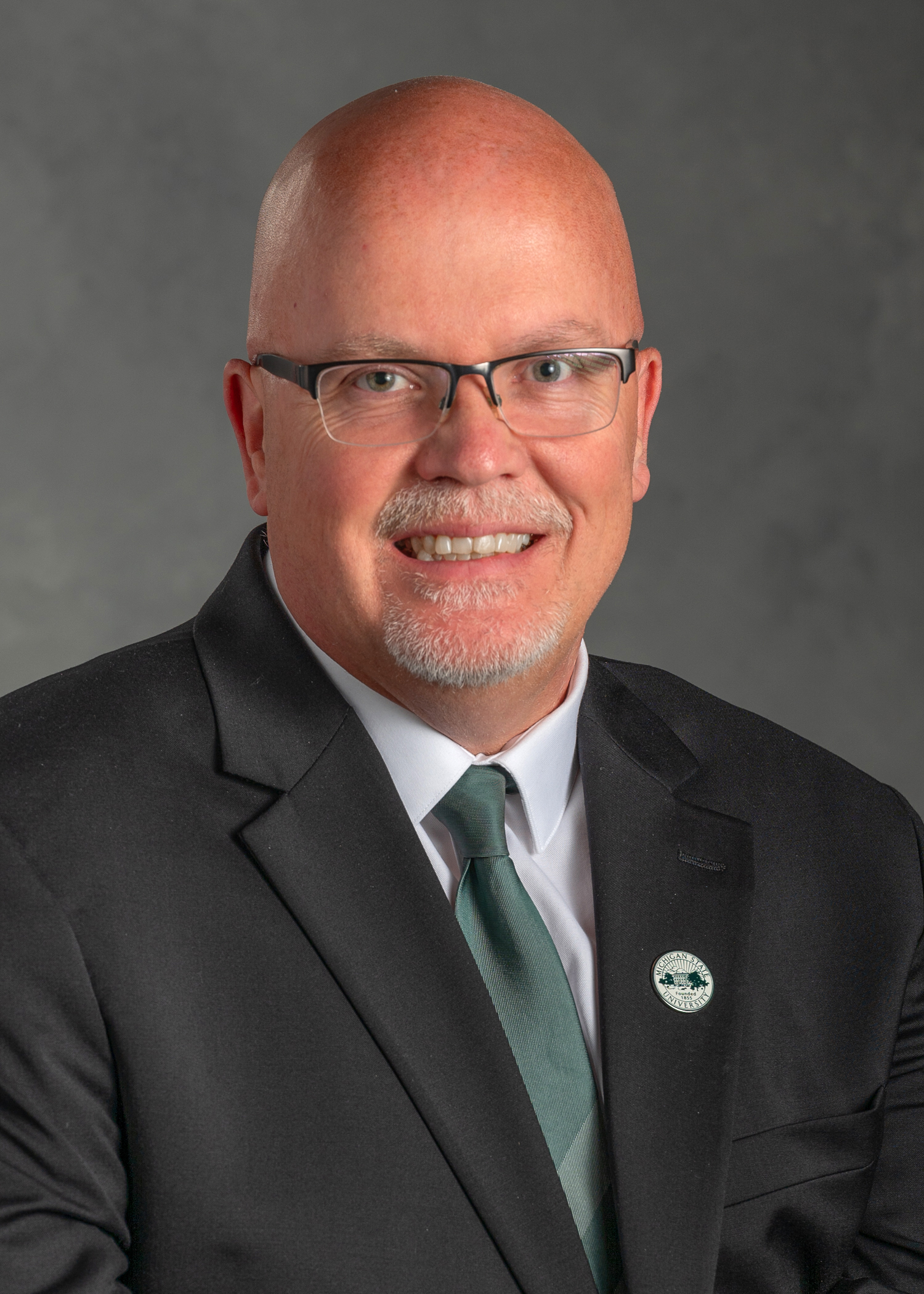
"The new facility brings MSU in line with industry standards and will allow researchers to utilize the latest technology in dairy science,” said MSU AgBioResearch Director George Smith. “Input from the industry directly guides the focus of our research efforts, ensuring that Michigan producers' most urgent needs are addressed through applied research and outreach."
The two-year construction project is nearing its end. By the end of August, more than 600 cows will populate the farm; soon after, ongoing research will hit full pace, and a new generation of students will enter the MSU Dairy Cattle Teaching and Research Center this fall, eager to learn all the facility’s bells and whistles.
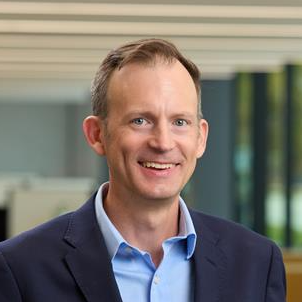
“It has been amazing to see the anticipation and response from the Michigan dairy community,” said MSU College of Agriculture and Natural Resources Dean Matthew Daum, as he greeted the scores of visitors touring the MSU dairy farm on July 17. “There is nothing like this facility, at this scale, anywhere in the world. This farm is indicative of MSU’s position as a global leader in dairy research and education and serves as a showcase facility for MSU’s land-grant mission.”
Visitors toured the 165,000-square-foot cattle barn, which will comfortably house more than 600 cows with the capacity to facilitate cutting-edge research. Expansion and modernization will allow MSU faculty to increase research output while providing students a learning environment comparable to commercial farms across the state.
“As a dairy farmer, I’m unbelievably excited,” said Glenn Preston, owner of Preston Farms and a representative on the MSU Council for Agricultural Research, Extension and Teaching (CARET). “Our goal is to perpetuate the opportunity for the next generation, and this generation coming into this place has got an unbelievable opportunity to have an experience that previous generations didn’t have at Michigan State.”
Preston and MSU CARET colleague Char Wenham said the potential outcomes provided by the new dairy farm are limitless.
“This facility is a classic example of a modern dairy. It shows that the dairy industry is not just for farmers. This is management. This is environmental protection. This is agriculture. This is communication and big data. You can hardly find a subject this center doesn’t touch,” Wenham said.
The MSU Dairy Cattle Teaching and Research Center serves as a hands-on learning center for Spartan students enrolled in the Department of Animal Science, the College of Veterinary Medicine, and the MSU Institute of Agricultural Technology’s Dairy Management Program. Spartan dairy students will now be training on a modern farm, equipped to replicate even the most high-tech operations in the world today.
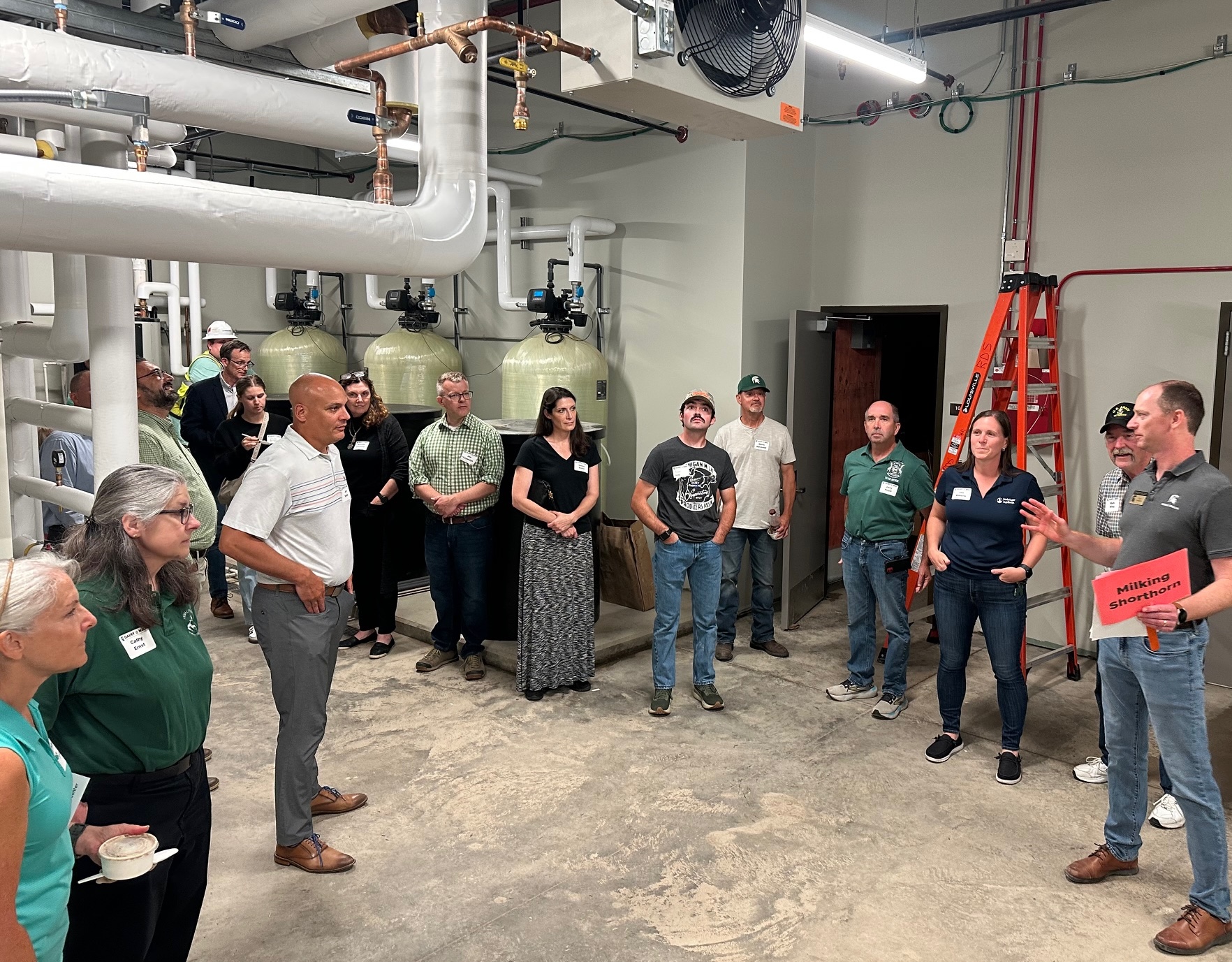 The juxtaposition for former MSU dairy students touring the new facility was striking. Many recalled fondly, maybe with a tinge of jealousy, their experiences milking, monitoring and moving cows at the former MSU dairy farm – a facility that supported award-winning production and renowned graduates for more than 60 years.
The juxtaposition for former MSU dairy students touring the new facility was striking. Many recalled fondly, maybe with a tinge of jealousy, their experiences milking, monitoring and moving cows at the former MSU dairy farm – a facility that supported award-winning production and renowned graduates for more than 60 years.
2023 MSU Animal Science Dairy Concentration alumnae Mikayla Bowen said modern classrooms and hands-on learning with new technology will drastically improve the learning experience for Spartan students.
“When I was a student, we had to travel to off-site farms for cow work. Now, with the facility being so accessible, students will have more frequent and meaningful hands-on interactions, something that’s critical in agricultural education. The new farm will undoubtedly attract more students and researchers,” said Bowen, who now serves as communications coordinator for the Michigan Milk Producers Association.
“While the new dairy facility is a huge milestone, it’s important to remember that the strength of MSU’s dairy program lies in its people. This investment reflects the university’s recognition of the potential that’s always been there. The program wouldn’t be where it is without its leadership, faculty and community engagement through MSU Extension. Their passion and commitment are what make MSU's dairy program truly exceptional.”
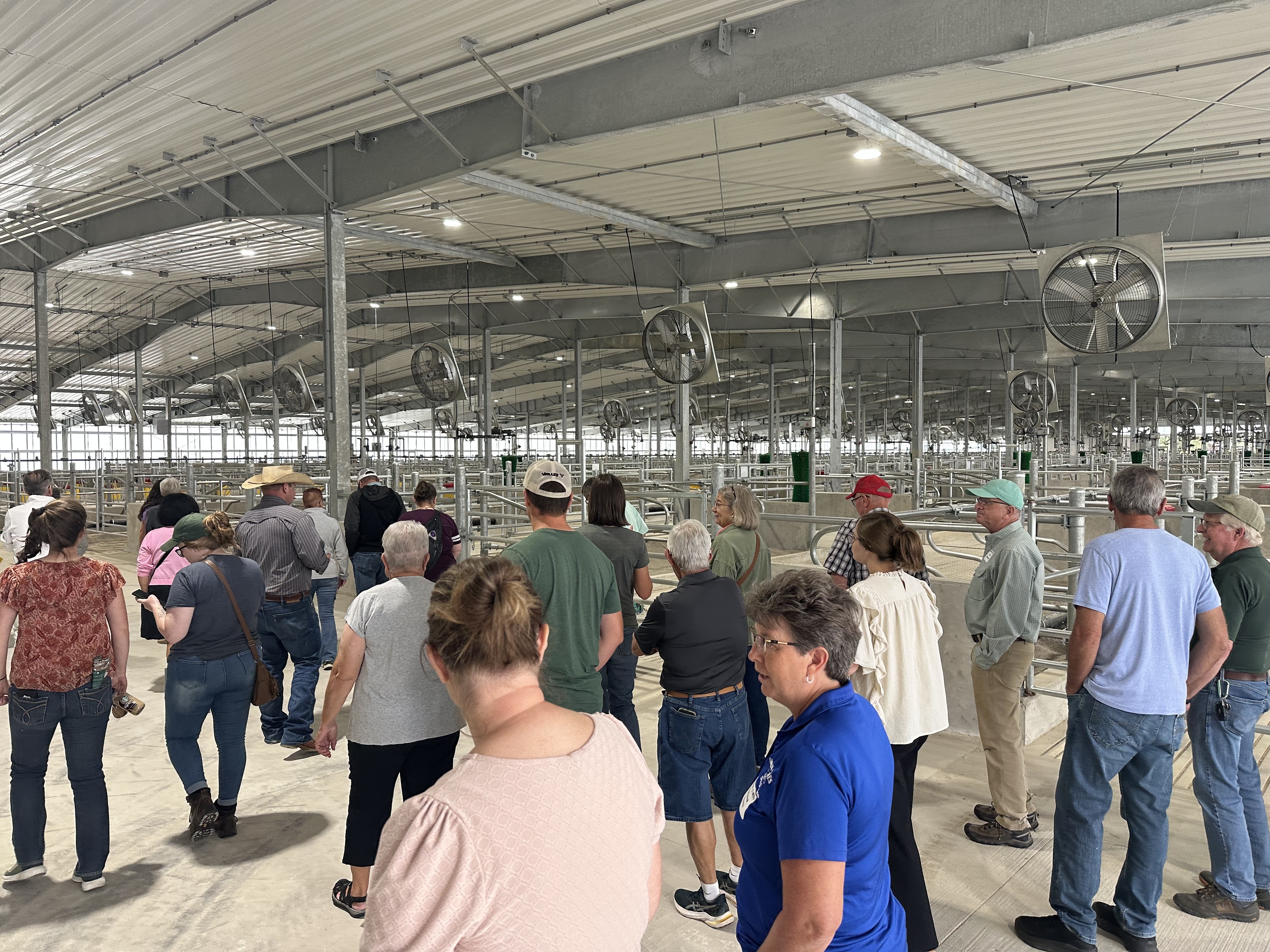 Support from the State of Michigan and industry stakeholders was essential to the development and construction of the new Dairy Cattle Teaching and Research Center, and Daum said the open house served to celebrate with the community and showcase MSU’s vision to leverage state-of-the-art facilities to address Michigan’s most pressing concerns.
Support from the State of Michigan and industry stakeholders was essential to the development and construction of the new Dairy Cattle Teaching and Research Center, and Daum said the open house served to celebrate with the community and showcase MSU’s vision to leverage state-of-the-art facilities to address Michigan’s most pressing concerns.
Chuck Lippstreu, president of the Michigan Agri-Business Association, said the investment in MSU’s dairy infrastructure highlights Michigan’s commitment to the future of dairy success and sustainability. Lippstreu credited the partnership and collaboration between MSU, the State of Michigan and industry stakeholders, in aligning missions to collaborate on a project that will ultimately serve the entire state.
“This is nothing short of incredible. When you look at land-grants across the U.S., almost any research and teaching facility you go into today needs repair. That was the MSU Dairy Cattle Teaching and Research Center before this new facility was built,” Lippstreu said. “There was a need to move into the next generation, and that’s what we have here today. Frankly, this is a once-in-a-lifetime opportunity for the industry, because so many facilities are either way too old or need massive upgrades and infrastructure investments, and we’re sure lucky to have that here in Michigan.”
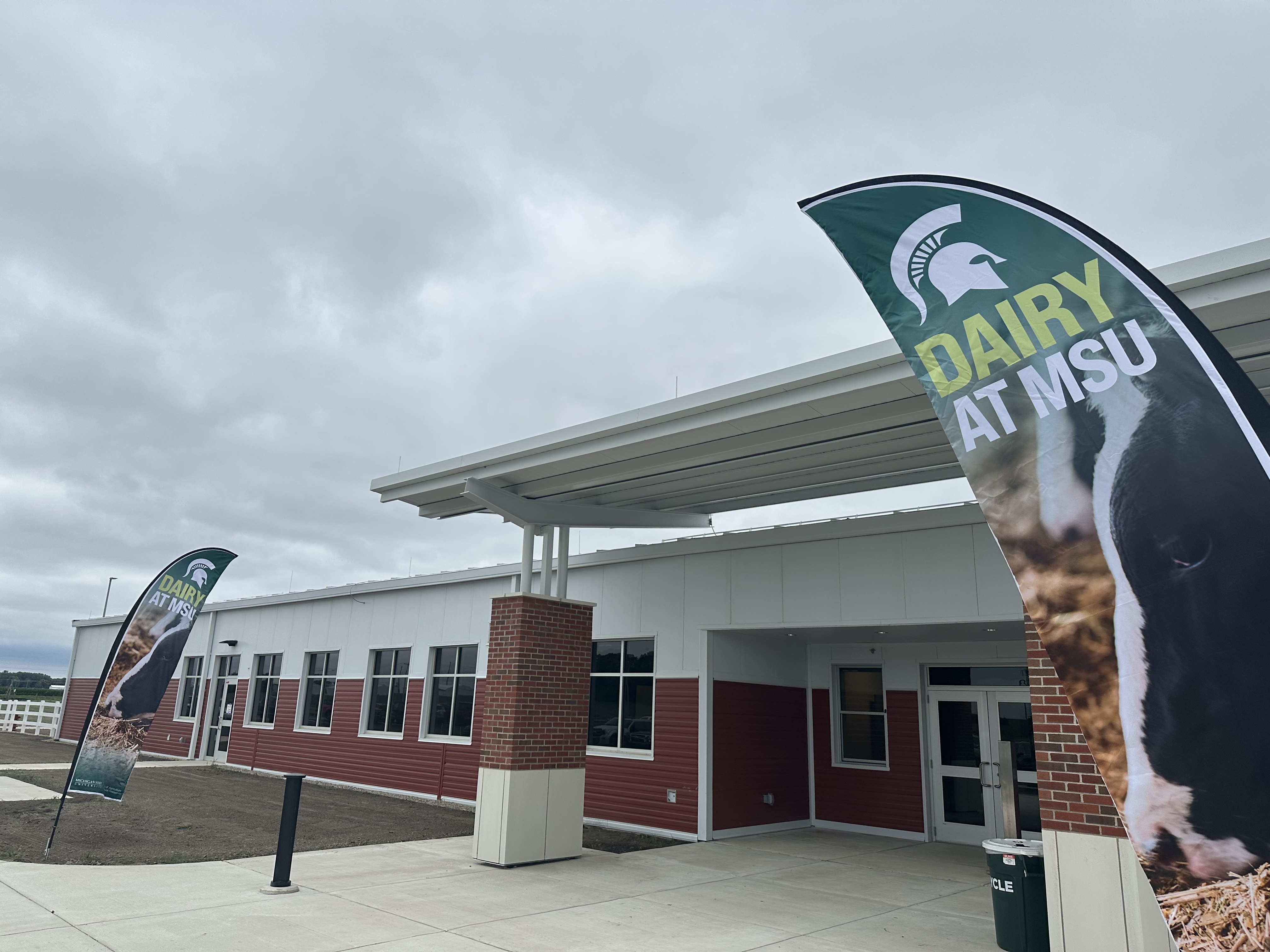 Michigan is home to more than 850 dairy farms and approximately 436,000 dairy cows. Michigan’s dairy industry contributes $15.7 billion to the state’s economy (No. 6 nationally) and the state leads the nation in production efficiency – ranking No. 1 nationally in milk-per-cow production.
Michigan is home to more than 850 dairy farms and approximately 436,000 dairy cows. Michigan’s dairy industry contributes $15.7 billion to the state’s economy (No. 6 nationally) and the state leads the nation in production efficiency – ranking No. 1 nationally in milk-per-cow production.
Michigan State Rep. Jerry Neyer, chair of the House Agricultural Committee, toured the new Dairy Cattle Teaching and Research Center and came away impressed with the breadth of applicable and relevant upgrades that will benefit dairy farmers across the state.
“I saw money well-spent (as I toured the facility) today,” said Neyer, who represents portions of Gratiot and Isabella counties. “This farm further establishes Michigan and MSU at the forefront of dairy research and teaching. Dairy is the leading agriculture sector in Michigan and one of the leading industries in the state, and it is vital we make investments to keep this industry viable and develop research tailored to our unique environment.”
Part of MSU’s vision for the future of dairy is based on a circular operation that helps producers minimize the environmental footprint of dairy farming while maximizing the profit of operations of all sizes. Leveraging its location adjacent to the MSU Anaerobic Digestion Research and Education Center, the MSU Dairy will operate using a circular approach in which waste products are broken down into renewable sources of fertilizer, water and energy that are directed back into the operation and provide additional sources of revenue.
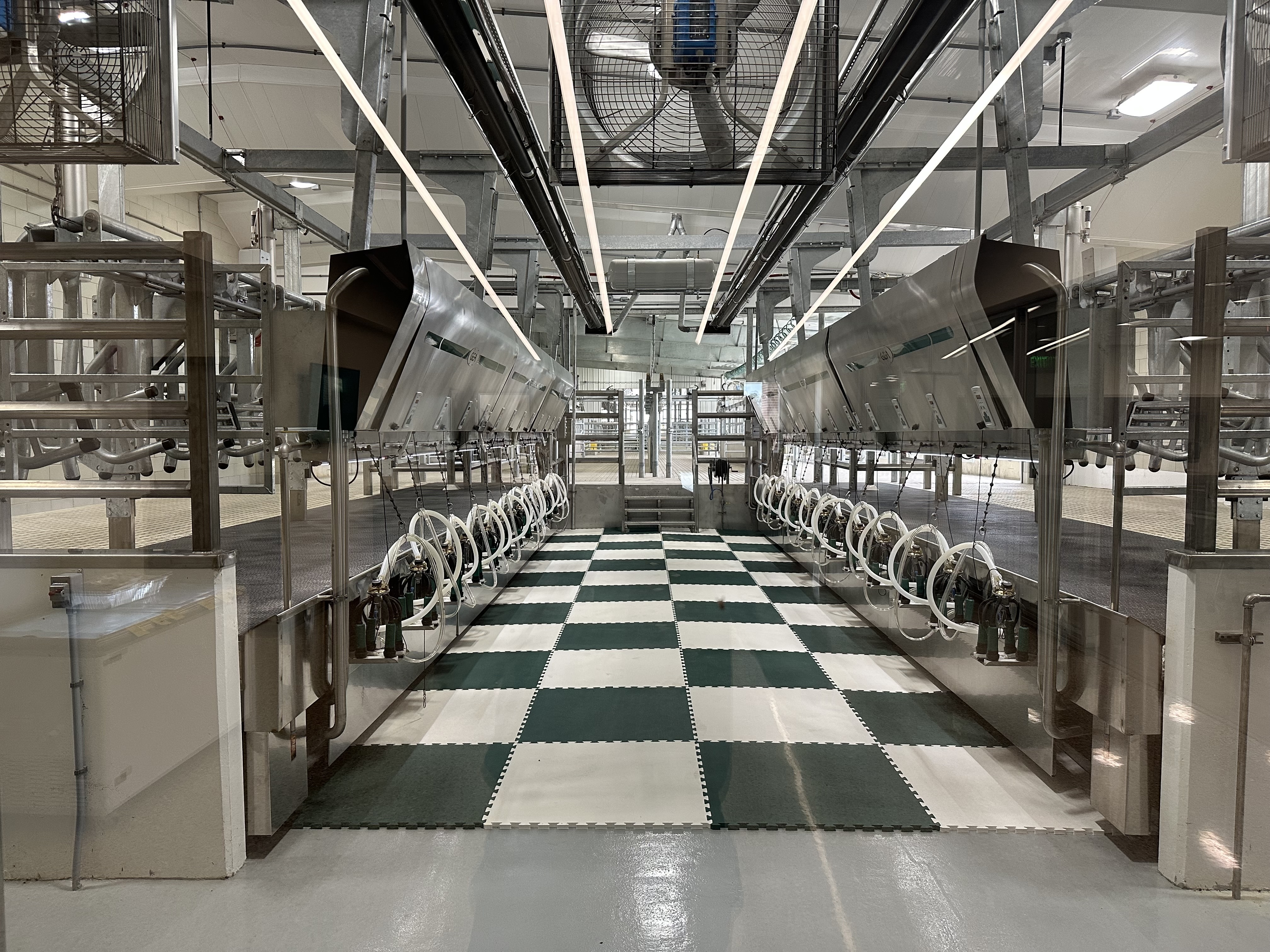 Alan Ross, a 1977 cum laude graduate of the College of Agriculture and Natural Resources, was “blown away” by the modern dairy farm. Alan toured the farm with his wife, Rebecca, and said he ultimately came away reminded of the university’s past as he imagined how this new facility would shape the future of agriculture in Michigan.
Alan Ross, a 1977 cum laude graduate of the College of Agriculture and Natural Resources, was “blown away” by the modern dairy farm. Alan toured the farm with his wife, Rebecca, and said he ultimately came away reminded of the university’s past as he imagined how this new facility would shape the future of agriculture in Michigan.
“In 1855, when a handful of people came to this swampy field in mid-Michigan to find solutions to the challenges farmers were facing, they were establishing a vision that has always struck close to home to Rebecca and me – to solve basic needs across the world, to share solutions with the public, to inform the public about their food and the processes needed to deliver it to their refrigerators, and to reinforce clean, healthy environments,” Ross said. “From the beginning, MSU has been about serving a common goal. Investments like this are proof that while the world may change and evolve, MSU’s history and mission are still the same.”
As CANR embarks on this bold vision, support from alumni, partners and friends will be critical. To learn more about how you can help move these transformational projects forward and position yourself at the forefront of agriculture and sustainability research at MSU, contact Kyle Cutler, cutlerky@msu.edu, Director for Development at CANR.



 Print
Print Email
Email





